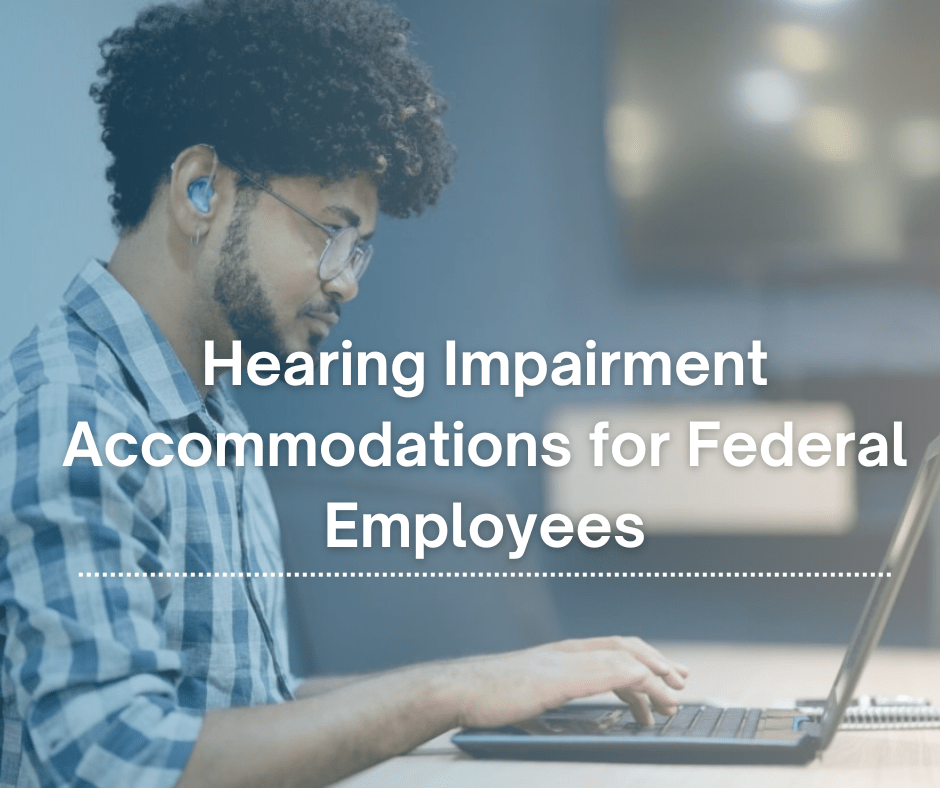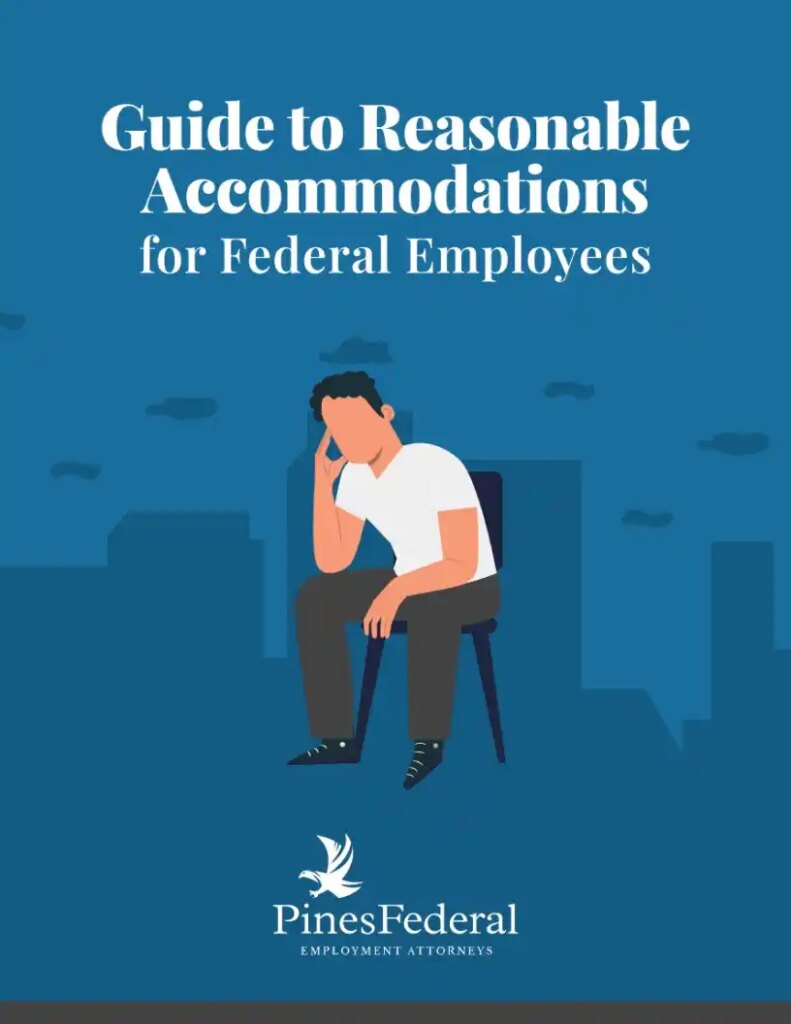
The National Institutes of Health (NIH) recently estimated that approximately 15% of American adults have some degree of hearing loss.
Anyone living with partial or complete hearing loss knows all too well the challenges it presents in day-to-day activities.
These include communication barriers, feelings of isolation, and the struggle to stay engaged in conversations. These challenges can be magnified in a professional setting, potentially impacting job performance and interpersonal relationships.
Fortunately, multiple laws mandate that hearing loss is a valid condition for reasonable accommodations for federal employees.
Dive into this article to understand the legal framework safeguarding the rights of hearing-impaired federal employees. We’ll explore the spectrum of practical accommodations available and shed light on how a federal reasonable accommodations attorney can guide and advocate for you in the workplace.
Call us at (800) 801-0598 or fill out our online form today to start working towards the help you need.
Is Hearing Loss a Disability Under the ADA?
Yes. The two major laws surrounding reasonable accommodation are the Rehabilitation Act of 1973 and the Americans with Disabilities Act (ADA). The Rehabilitation Act outlawed discrimination against people with disabilities and opened the door for reasonable accommodation for disabled people. The ADA then built upon this foundation to create the modern reasonable accommodation process. Neither of these laws possesses a specific list of conditions they consider disabilities. Instead, they define any “physical or mental impairment that substantially limits one or more major life activities” as a disability.
Major life activities include but are not limited to:
- Sleeping,
- Breathing,
- Thinking,
- Working,
- Reading,
- Lifting, and
- Walking.
Actions, movements, cognitive tasks, and sensory functions all fall under “major life activities.” As hearing loss affects the ability to hear, communicate, and understand information, hearing loss constitutes a disability.
The U.S. Equal Employment Opportunity Commission (EEOC) recently reiterated this mandate in a 2023 guidance document. This document stated that a disability determination cannot consider the positive effects of any hearing-assisting device. In other words, your employer cannot ignore your hearing loss simply because you have a hearing aid that reduces your hearing loss.
Does the Law Require Workplace Accommodations for Hearing Loss?
The ADA mandates accommodations for hearing-impaired employees as long as it does not create an undue burden on the agency’s operations. In light of that, all you have to do to kick-start the reasonable accommodation process is initiate a request. This request does not have to use any “magic words” to get an accommodation, nor do you need to go in-depth about your medical history.
The key parts of any request are:
- A general description of your condition;
- The limitations your condition creates on your ability to work; and
- What accommodation you would like the agency to provide.
Your employer cannot force you to undergo a medical examination, but it is helpful to provide a doctor’s note confirming your allegations regarding your disability. Furthermore, any medical information you share with your employer must remain confidential.
[DOWNLOAD] Reasonable Accommodations for Federal Employees

Examples of Accommodations for Hearing-Impaired Federal Employees
Now we know that the ADA creates an obligation that federal employers provide accommodations absent an undue burden, let’s explore potential types of accommodations. Here are some examples of hearing loss reasonable accommodations for federal employees:
- Assistive technology enhancements. This can include amplification devices, telecommunication devices for the deaf (TDD), or specialized phone systems that convert voice to text. These technologies can aid in clearer communication and comprehension.
- Sign language interpreters. For meetings, conferences, or training sessions, having an interpreter can ensure that employees with hearing impairments stay in the loop and can fully participate in discussions.
- Telework/Remote work. In some cases, telework may allow employees to perform their jobs exclusively by email and instant messaging, removing the need for verbal and telephone-based communication.
Ultimately, the right reasonable accommodation for you depends not only on your condition but also on the needs of your position.
How Can I Prove My Request for Reasonable Accommodation for Hearing Loss?
Begin by anchoring your request with solid evidence. Ideally, this means a thorough medical assessment from your doctor that describes the extent of your hearing loss. It should also capture the impact your disability has on your daily functions and your work performance. After that, clearly outline the specific accommodations you need. Discuss how these accommodations can specifically help you overcome your limitations. Furthermore, be ready to consider alternative suggestions from your employer. Finding a reasonable accommodation is an interactive process that requires active participation from you and your employer.
Consider reaching out to a federal employment attorney. They can help analyze your case and represent you to your employer, especially when your employer is difficult or unresponsive.
Contact Us for Help With Your Reasonable Accommodation Request
Hearing loss is grounds for reasonable accommodations. But sometimes, federal employees need professional assistance to defend their rights. That’s where we come in. The legal team at Pines Federal strives to vindicate the rights of all federal employees, especially those seeking accommodations for their disabilities. Our professionals can help you obtain the reasonable accommodation you deserve under the law, including telework and remote work. Let us be your workplace defenders today. Contact us online or give us a call at (800) 801-0598 to get started.